Rice cultivation and dairy work are the two most intensive activities at Annapurna Farm.
Dairy is thriving throughout the year with a daily need of attention and work to be done. Paddy cultivation is happening for about 7-8 months per year in the field, and is very intensive with peak labor needs at planting and weeding time.
This starts in August with the first paddy seedbed and a small puja (= ceremony) to invoke the gods for good fortune, field preparation, planting, weeding and finally harvesting. We make about 8-10 seedbeds in a period of 80-100 days to be able to plant 20 acres over a period of 3-4 months. We are trying to speed up this process by organizing the work better and use our resources more efficiently every year.
In fact, preparation for this season’s paddy has started directly after the harvest of the previous rice crop by applying compost and establishing a green manure crop (to enhance soil fertility) on the fields since we had late rains and the rainwater harvesting ponds had lots of water. Then there was the preparation of nursery soil in May/June.
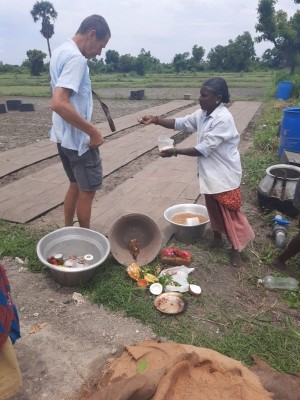
Beginning of the rice season Puja 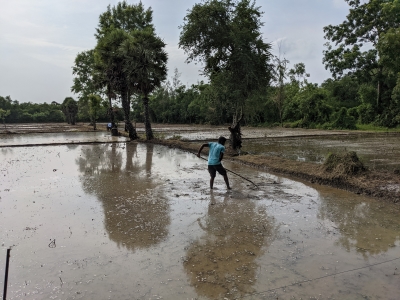
Levelling the paddy field 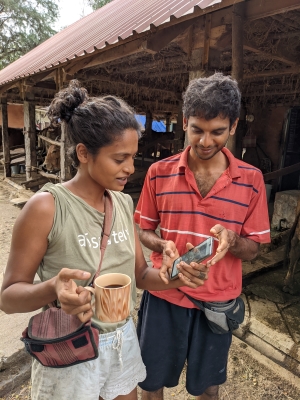
Madhuri and Tarun 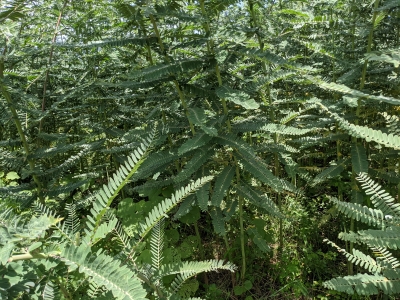
Good green manure this year 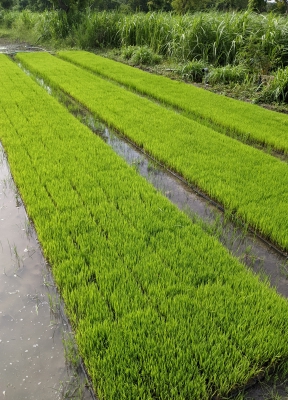
Paddy seedbed to be transplanted 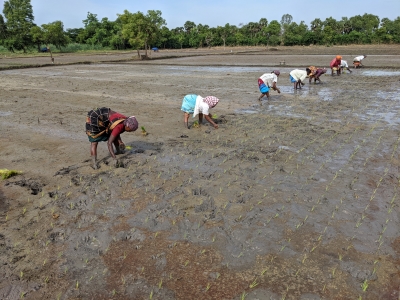
Paddy planting
Every year we do some experiments and tests to learn, improve and keep our minds from getting into a rut. This year we are introducing a few new varieties of rice which our volunteer Madhuri organized for us last season. Then we do a few plots of direct sowing of paddy with a paddy drum seeder which Tarun, another of our volunteers, borrowed from his farmer friends.
Both these volunteers have moved on but were very helpful in the work here and we are still very much connected to support each other where possible.
Direct sowing of paddy is not new to us, but the drum seeder is, and we want to see if this method of sowing seeds in rows on the field helps us to cut costs of transplanting which is a major expense in the cultivation.
We try to find paddy varieties which suit our conditions and can be sown at any time around the monsoon time so we are more flexible when weather is erratic and unpredictable. Most traditional varieties are very time-bound.
Very slowly we are trying to make the paddy cultivation more resilient and economically efficient, it is a wonderful and endless endeavor and totally in line with our work in Auroville.